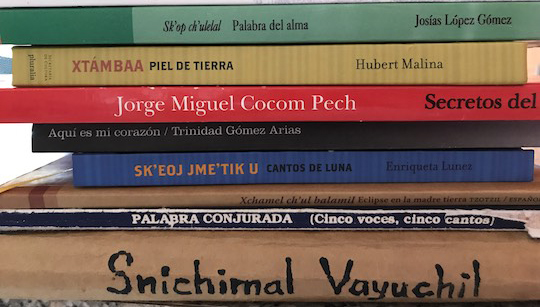In this round-up of literary news, our editors report to us on resilience, adaptation, and performance. In Palestine, a remarkable poet is honoured with a prestigious award; in the Philippines, literary works take to the cinema and the stage; and in Mexico City, an annual multidisciplinary book fair brings together literature, music, film, and more.
Carol Khoury, Editor-at-Large, reporting from Palestine
In the heart of a world often forgotten, where borders and conflict has created an intricate tapestry of endurance, there lives a poet named Mosab Abu Toha. He is a man of extraordinary eloquence, a lyrical visionary born amidst the chaos of Gaza. Each morning, as the sun timidly broke through the horizon, Mosab’s words flowed like a river, weaving tales of resilience and hope from the depths of despair. He perches on his metaphorical throne, the Edward Said Library, a sanctuary of knowledge he had founded in the heart of Gaza.
Mosab’s poetry is a testament to his life—marked by the relentless siege that encircled his homeland. From childhood innocence to the responsibilities of fatherhood, he had witnessed four brutal military onslaughts, yet his verses breathe with a profound humanity that refuses to wither. As Mosab’s words echoed through the world, many took notice of his poetry debut Things You May Find Hidden in My Ear: Poems from Gaza, (City Lights Books, 2022). He was amongst the winners of the Forty-Fourth Annual American Book Awards, announced last week. The book was also a winner of the 2022 Palestine Book Award.
Read an interview with him at PEN America’s weekly series, and a reading and discussion (video and transcript) can also be found at The Jerusalem Fund.
And far from the headlines and the spotlight, in the same enclave, three Gazan women also added their voices to the chorus of survival. Their books, A White Lie by Madeeha Hafez Albatta; Light the Road of Freedom by Sahbaa Al-Barbari; and Come My Children by Hekmat Al-Taweel, bear witness to the strength and courage of the women of Gaza, further enriching the archive of resilience. READ MORE…






